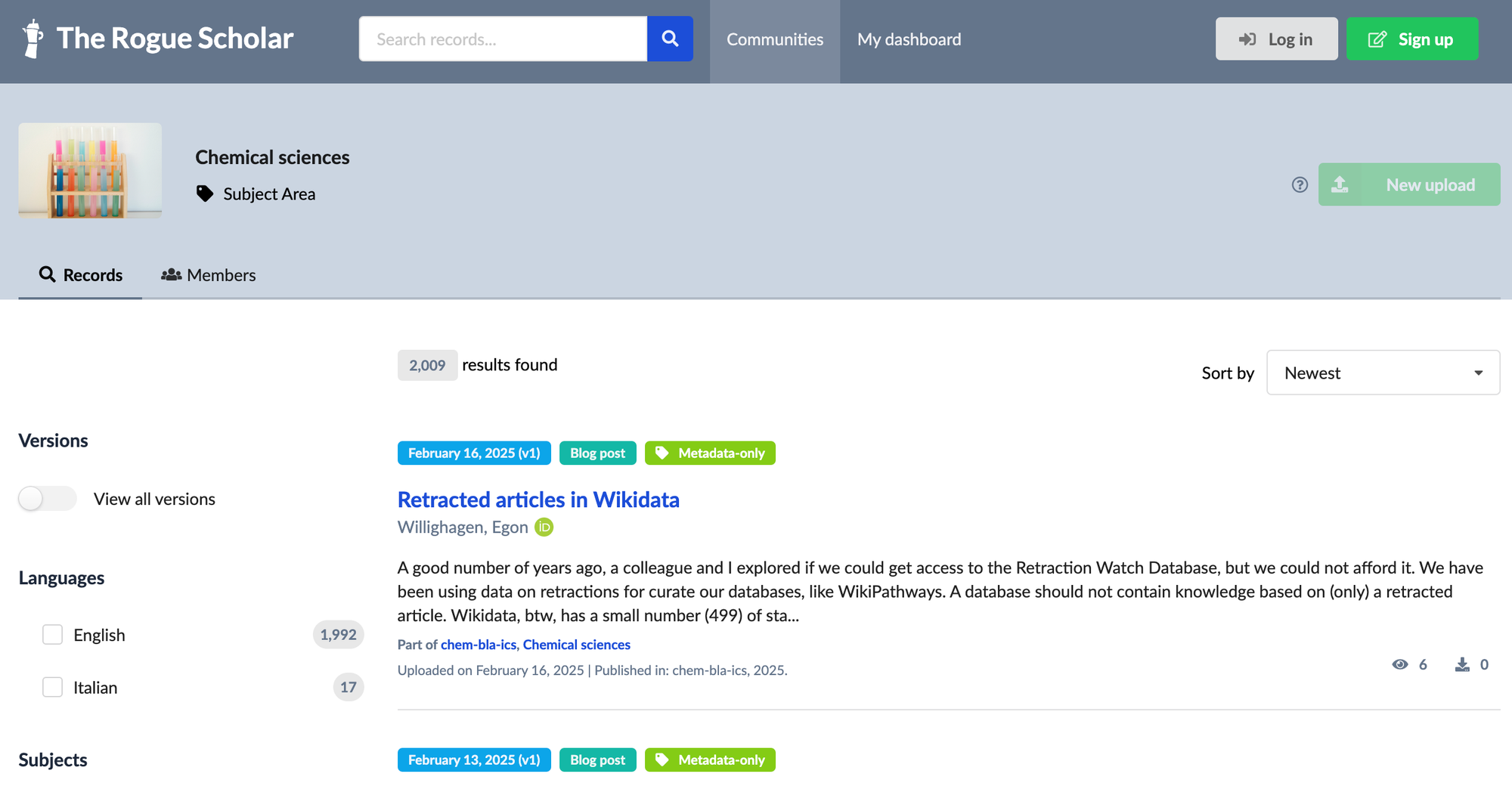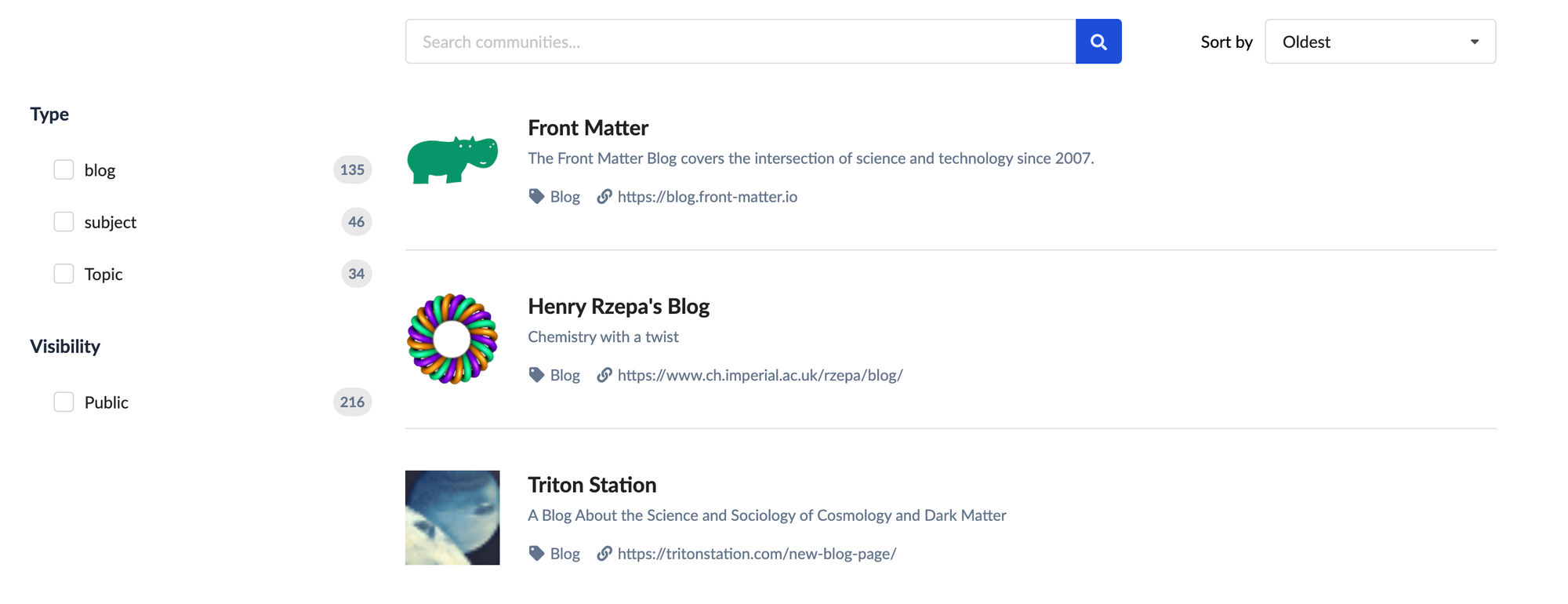The Rogue Scholar science blog archive has started to automatically add all blog posts to the subject area community of the blog. Rogue Scholar uses the 48 OECD Fields of Science and Technology subject areas since September 2023 and blog authors pick a subject area when they join Rogue Scholar.
Users can now browse and search all blog posts in a particular subject area, e.g. Chemical sciences with currently five participating blogs and more than 2000 posts:

Many blog posts fall into more than one subject area, and the OECD subject areas are sometimes not a good fit. Over time, Rogue Scholar may define more fine-grained subject areas and/or enable the automatic subject classification of individual blog posts using machine learning. But similar to preprint archives such as arXiv, the subject area categories help users find relevant content, complementing search.
These subject area communities also allow functionality such as subject area RSS feeds and/or newsletters. As communities are a core feature of the InvenioRDM repository platform that Rogue Scholar uses, Rogue Scholar will work with the InvenioRDM developer community on these functionalities. One feature that has already been developed – but yet not included in the current version 12.0.13 of the InvenioRDM software – is sub-communities. They would work well with subject area classifications – OECD for example uses six top-level subject areas (e.g. Natural sciences or Humanities) and 42 second-level subject areas. More fine-grained subject area classifications such as the Australian and New Zealand Standard Research Classification (ANZSRC) use three or more hierarchical levels.
Rogue Scholar now has three types of communities, and they can be filtered in the Rogue Scholar community search:
- blog communities. All posts from a particular blog,
- subject area communities, described above,
- topic communities. Blog posts about a specific topic such as Open Infrastructure.

The first two communities are managed automatically, whereas blog posts are suggested and approved manually for topic communities.
Adding all nearly 25,000 Rogue Scholar blog posts to one subject area will take until the end of February, together with changing the content type from preprint to blog post, as reported last week. And the subject area classification can always be changed if a blog author feels that a different subject area is a better fit. Currently via email or Slack, in the future via the Rogue Scholar web interface. For the latter the first step for blog authors is to create a Rogue Scholar account so that the blog can be linked to that account with appropriate permissions.
References
- Fenner, M. (2023, September 4). New in Rogue Scholar: Filter posts by language. Front Matter. https://doi.org/10.53731/ggtnh-1as93
- Fenner, M. (2025, February 10). It is time for a blog post content type. Front Matter. https://doi.org/10.53731/3htrx-1a525


